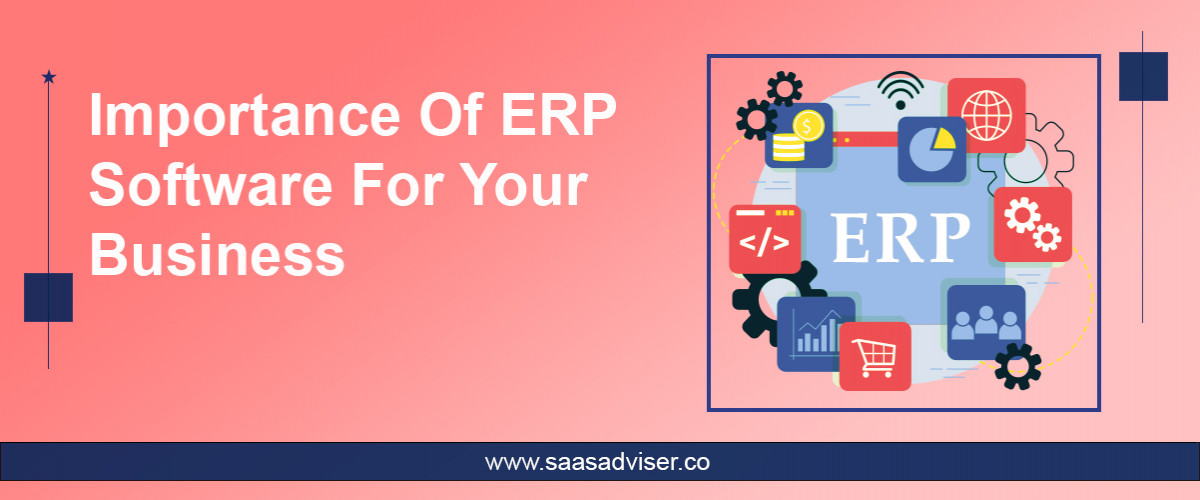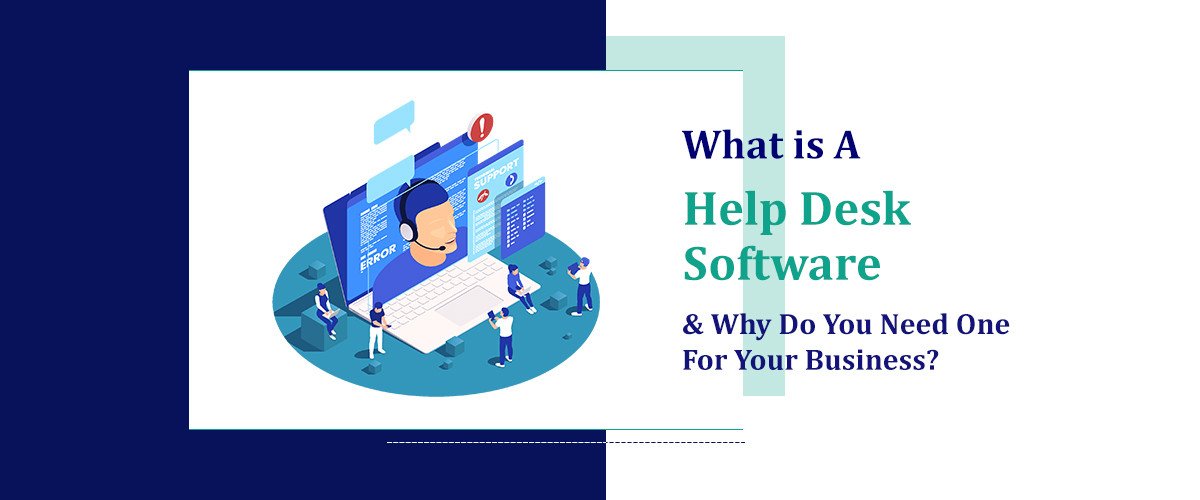What we'll cover
Spreadsheets ultimately become unworkable for growing businesses. (Enterprise resource planning) ERP software fills this need by gathering and organizing crucial company data and assisting businesses in maintaining lean, effective operations even as they grow.
Most company professionals are familiar with the word "ERP," but they may not fully understand the benefits these systems can provide their teams. We'll go into great detail on what ERP is, how it may benefit your company, and much more.
Enterprise Resource Planning (ERP): What Is It?
At its heart, ERP is an application that streamlines corporate operations while delivering data, internal controls, and insights. It uses a centralized database that compiles inputs from several departments, including accounting software, manufacturing software, supply chain management software, sales software, marketing software, and HR software.
Every company has work to do that involves many stakeholders with different responsibilities. However, it becomes difficult when the data required to carry out procedures and make crucial judgments is dispersed across disparate platforms. Employees struggle to locate the information they need and often don't have access to it, regardless of whether the data is stored in spreadsheets or basic business management software. For instance, the accounting and FP&A teams could have a spreadsheet for monitoring expenses containing different data.
Since there are so many different data sources, it is extremely difficult to keep everyone informed, and cooperation and efficiency suffer, particularly as an organization expands.
Because there is no one location where employees can seek the most recent information on all elements of the organization that are relevant to them, employees spend time looking for papers and may end up repeating work. Additionally, it is challenging to fully understand the causes and effects of events that influence your company.
► Are You Looking For ERP Software? Here Is The List:
This issue is resolved by ERP software, which gathers data into a single database to provide managers and staff members with cross-departmental visibility. Additionally, it eliminates the issues arising from contrasting data sources and allows them to analyze numerous situations, find ways to optimize processes, and provide significant efficiency benefits. As a result, costs are reduced, and employees are more productive since they spend less time looking for information.
ERP software are essential tools for businesses across sectors and of all sizes because they pay off greatly when specifically designed to match the demands of a particular firm. For 25 years, many of the most well-known and successful companies worldwide have relied on ERP. Now, the configuration and cost of software development may be adjusted to suit the demands of companies of different sizes.
ERP software aids in integrating technology, people, and essential business processes throughout an organization.
Benefits of ERP Software
Enterprise Resource Planning (ERP) software performs a pivotal function in enhancing business efficiency and competitiveness, particularly when incorporated with the delivery chain era. One of the key blessings of ERP is streamlined operations because it consolidates diverse business tactics right into a unified platform, promoting seamless conversation and data sharing across exceptional departments. This integration minimizes the hazard of errors and guarantees actual-time access to accurate information, empowering selection-makers.
Supply chain generation and integration similarly amplify these blessings. ERP systems with deliver chain modules allow groups to optimize stock control, reduce lead times, and decorate calls for forecasting. By imparting a holistic view of the entire supply chain technology , from procurement to distribution, businesses can make informed choices that positively impact their bottom line. Additionally, the automation of delivery chain tactics via ERP minimizes manual intervention, reducing the likelihood of human errors and improving ordinary efficiency.
Furthermore, the ERP software program fosters collaboration among internal and external stakeholders. With improved verbal exchange channels and data visibility, groups can forge more potent relationships with suppliers and companions, main to higher negotiation competencies and a more responsive delivery chain. In essence, the integration of ERP software programs with the supply chain era equips agencies with the tools they have to adapt to dynamic marketplace conditions, decorate operational agility, and, in the end, acquire sustained growth.
why is ERP crucial for businesses?
ERP software are now standard equipment for companies wanting to allocate resources efficiently. They may aid in reallocating people and financial resources or developing fundamental business procedures that are more cost-effective without compromising on quality or performance.
When it comes to cooperation and planning, an ERP is also useful. Employees have detailed access to the inventory that is currently on hand, customer orders, supplier Purchase orders, and anticipated future demand. They may make modifications if required to prevent issues. As a result of employees being able to check on the state of other departments to inform their own choices, ERP software also enhances communication and cooperation.
ERP software offers a variety of reports and analytics as a complete source of data that may significantly impact the company. An ERP tool that executives find helpful is the ability to transform a massive amount of data into charts and graphs that depict patterns and assist in modeling potential outcomes.
How Does ERP Affect or Aid a Business?
ERP allows businesses to pinpoint areas where they may expand or enhance their operations. The key is user acceptance. Teams are more likely to identify issues, such as a surge in demand for a particular product, delayed shipments from a supplier, or an imminent cash flow constraint, the more workers have access. The problem may then be proactively mitigated to the greatest degree by employees.
In general, executives are results-oriented, employing data to accomplish goals like improving efficiency, cutting costs, and adapting to changing customer demands or market circumstances.
For business units, ERP software may automate labor-intensive processes prone to mistakes, such as account reconciliations, customer billing, and order processing, while giving teams the data they need to work more productively.
However, the true beauty of ERP comes in its ability to provide both a high-level overview of the state of the business and in-depth insights into a particular process or KPI by collecting and organizing data, seeing trends, and alerting users to abnormalities that need further study. With a spreadsheet, try that.
Other benefits for the company
-
Data accessibility from anywhere: Employees are no longer required to sift through a desktop's worth of papers or files. With cloud-based ERP, a salesman may check inventory at a customer location, or a warehouse manager can log in from a mobile device while on the work floor.
-
Information is constantly current: As inventory is retrieved, payments are made, or emails are sent to clients, the ERP system is promptly updated since it always gets information from numerous departments. This offers a significant advantage because decision-makers are basing their decisions on current facts.
Using the same data, business choices are made: All decision-makers are on the same page thanks to a shared database. Companies may plan and automatically send dynamic reports, and there are no redundant or conflicting sources of information.
Custom Declarations in ERP: A Global Advantage
The customs statement system is a linchpin for international trade organizations in the dynamic realm of modern-day supply chains. At the leading edge of this pivotal operation is the combination of custom declaration talents inside Enterprise Resource Planning (ERP) structures. This strategic inclusion is essential in ensuring compliance with the intricate net of global legal guidelines and price lists. By centralizing and streamlining the documentation critical for the import and export of commodities, ERP structures contribute substantially to the performance and integrity of worldwide change operations.
The automation and standardization inherent in ERP software offer multifaceted advantages. Beyond expediting the movement of goods, these structures notably reduce the chance of mistakes, fines, and delays inside the customs assertion system. This now translates to enhanced operational efficiency and cultivates a more resilient and compliant delivery chain. Furthermore, ERP structures empower companies with comprehensive access to and manipulation of their supply chain, providing real-time visibility into the popularity of customs clearances and associated techniques. In essence, the incorporation of custom declaration capabilities within ERP systems is now not the handiest way to expedite customs strategies; additionally, it fortifies worldwide change endeavors by imbuing them with transparency, efficiency, and heightened regulatory adherence.
Who Employs ERP?
The advantages of ERP have been recognized by businesses in many sectors and with various company types. Solutions that are adaptable and flexible may meet the needs of many different types of businesses.
The following sectors depend on ERP to manage their businesses:
- Digital media and advertising
- clothing, shoes, and accessories
- college shops
- Advisory Services Education Energy
- monetary services
- food and drink
- Fitness and beauty
- Allied health and life sciences
- IT solutions
- Manufacturing
- publishing and the media
- Nonprofit
- specialized services
- hospitality and restaurants
- Technology and software for retailers
- Logistics and transport
- the broadest dispersion
- Users & Roles
- Magento ecommerce development
Many job functions inside such organizations gain from ERP, including but not limited to the following:
Finance/Accounting: The accounting staff often adopts new technologies early. All transactions and other financial data in the system, such as payroll, accounts payable (AP), and accounts receivable (AR), will be tracked and reported on by this group. Financial planning and analysis (FP&A) professionals may use ERP to transform thorough financial data into projections and reports on revenue, costs, and cash flow, whether employed separately or as a division of the accounting department.
Logistics chain: The ERP system is utilized by staff members concerned with operations to ensure that products go smoothly and continuously from supplier to consumer. This group includes buying agents, inventory planners, warehouse managers, senior supply chain executives, and professionals involved in warehouse data integration. Warehouse data integration plays a crucial role in ensuring seamless communication and coordination between different aspects of the supply chain, optimizing inventory management, and improving overall operational efficiency. They rely on the system's reliable, complete information to optimize inventory levels, prioritize orders, maximize on-time shipments, prevent supply chain interruptions, and uncover inefficient or manual operations.
Sales and marketing: By automating lead management and keeping track of prospects' interactions with your business, an ERP system may boost sales force efficiency and provide better outcomes. As prospects go through the sales funnel, reps may record conversations and modify the status of the prospects. To more effectively distribute its money, marketing may use the same information to automate and manage outreach via all channels, including social media, display advertisements, and email.
Human resources: Using the ERP, the HR division keeps track of all personnel data and general workforce trends. It can rapidly locate each employee's contact information, information about their pay and perks, and other papers. To help line-of-business managers better distribute their workers, HR may also track employee retention by department, average compensation by title, promotion rate, and other indicators.




